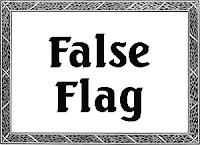 |
| Ottoman & German officials blame Russia - 1914 |
“The German government had been hoping that the Ottomans would enter the war to support them but the government in Istanbul was undecided. The Germanophile Ottoman War Minister, Enver Pasha, began conspiring with the German ambassador to bring the empire into the war. Attempts to secure widespread support in the government failed, so Enver decided to instigate conflict. With the help of the Ottoman naval minister and German Admiral Wilhelm Souchon, Enver arranged for the Ottoman fleet to go out to sea on 29 October supposedly to perform maneuvers. They were to provoke Russian vessels into opening fire and then accuse them of inciting war. Instead, Souchon raided the Russian coast in a flagrant display of hostility, causing little lasting damage but enraging the Russians. ...
Ramifications:
“A two-day political crisis followed the raid. It was obvious to the Ottoman government that Enver had allowed the attack to occur. As soon as the news of the event reached Istanbul, the Grand Vizier and the Cabinet forced Enver to wire a ceasefire order to Souchon. ... Though many in the government thought it opportune to attack Russia, cabinet solidarity was regarded as vital and a letter of apology was soon drafted. On 31 October Enver informed the Germans of the planned apology and said there was nothing he could do. ...
“Meanwhile Enver, still fearing that the Russians would accept the Ottoman apology, decided to interfere. Just before the message was sent, he inserted a passage that accused the Russians of instigating the conflict. On 1 November the message arrived in Petrograd. Foreign Minister Sazonov responded with an ultimatum, demanding that the Ottomans expel the German military mission. The Ottomans rejected this proposal.”*
-------------------------------------------------------------/
*https://en.wikipedia.org/wiki/Black_Sea_raid